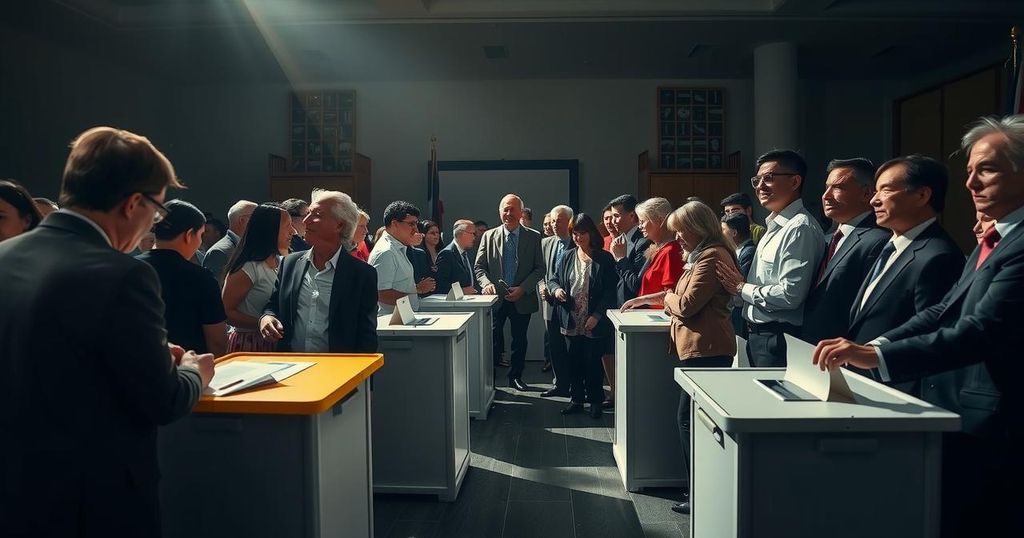Uruguay’s presidential runoff election features a close race between center-left candidate Yamandu Orsi and conservative Alvaro Delgado. Recent polls indicate a potential margin of fewer than 25,000 votes separating the two candidates. Both aim to attract undecided voters and those who previously backed smaller parties, reflecting the relatively stable political climate in Uruguay as compared to its neighbors. Results are expected shortly after polls close on Sunday.
In Uruguay, voters are preparing for a decisive second round in the presidential election, with polling conducted on Sunday. The contest features opposition candidate Yamandu Orsi from the center-left, who received 43.9% of the initial vote, versus Alvaro Delgado of the conservatives, who attained 26.8% but has garnered additional support from the Colorado Party. The expectation is that less than 25,000 votes will differentiate the two leading candidates, making the race extremely competitive.
Uruguay, often recognized for its tranquility and a relatively stable political climate, presents a unique electoral scenario. Unlike the polarized political landscapes observed in neighboring countries like Argentina and Brazil, the Uruguayan political environment facilitates overlap among conservative and liberal alliances, creating a less intense electoral contest. Polling stations will open at 8 a.m. local time, with preliminary results anticipated shortly thereafter.
Both candidates are vying for undecided voters and those who supported smaller parties in the initial election round. Despite a recent televised debate that seemingly did not alter public opinion significantly, both candidates have not articulated new promises to attract these key voters. Moreover, the majority of seats in the Senate rest with Orsi’s Broad Front, positioning him favorably to govern effectively.
With global trends suggesting a decline in incumbent parties’ popularity, particularly due to economic pressures such as inflation, analysts wonder if Uruguay will undergo a similar shift. However, some experts observe a strong economy may sway voters toward Delgado, indicating a lack of demand for wide-ranging political upheaval in the nation.
The current presidential runoff represents the culmination of a significant electoral year in Uruguay, a nation lauded for its progressive social policies and economic stability. The outcome is particularly noteworthy given the historical context of elections in South America, where polarization often prevails, notably in larger countries like Argentina, Brazil, and Mexico. In Uruguay, the absence of a stark ideological divide may influence voter behavior and the election’s overall outcome.
The upcoming presidential election in Uruguay signals a critical juncture for the nation as it seeks to continue its tradition of moderate governance amidst global instability and domestic economic concerns. With candidates attempting to appeal to the electorate amidst a uniquely tension-free political environment, the results of this highly competitive runoff will likely be scrutinized closely, not only within Uruguay but also in the broader context of South American politics.
Original Source: www.arabnews.com






